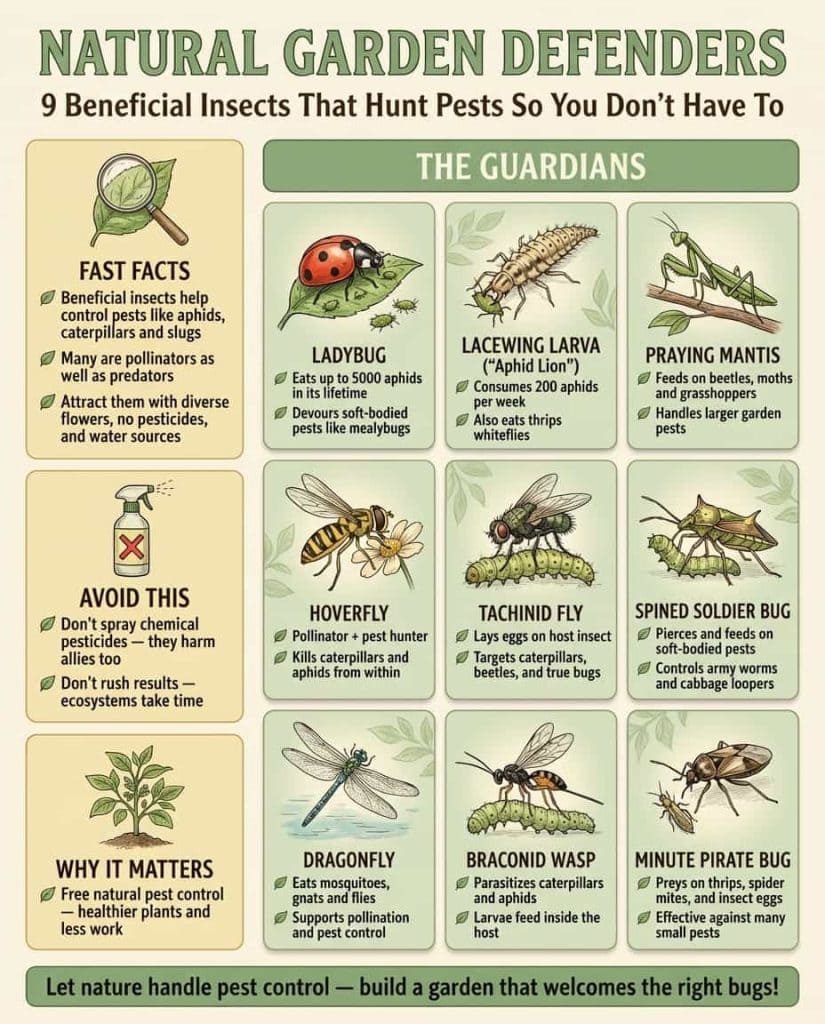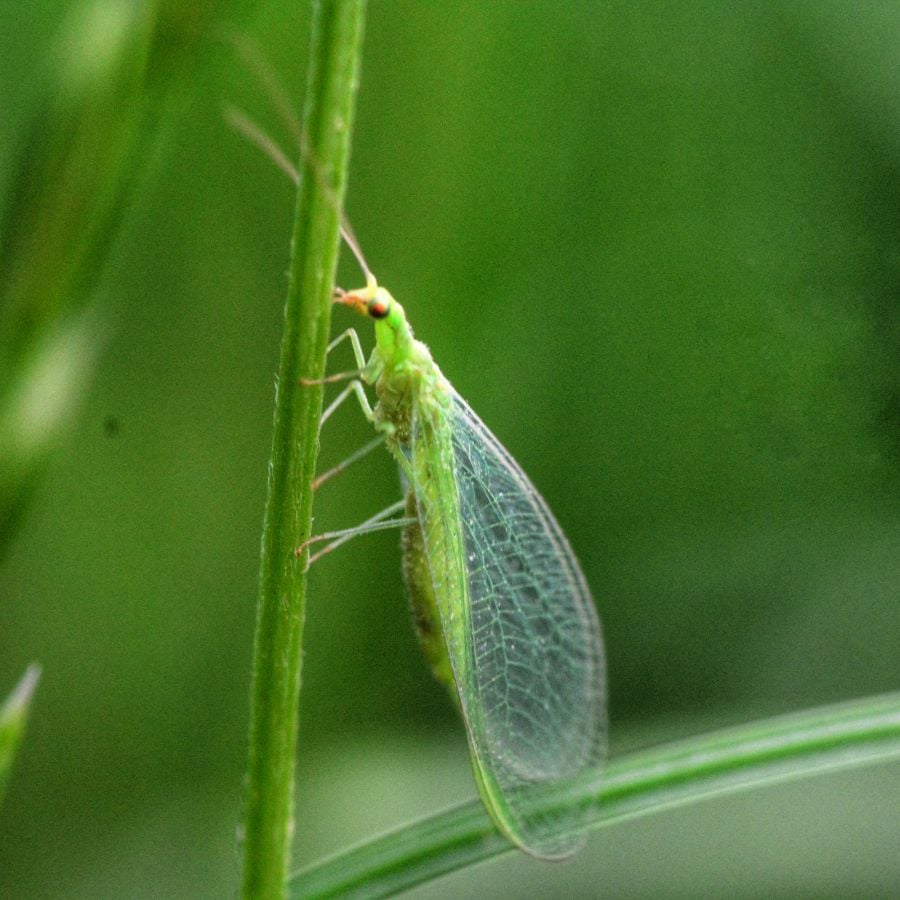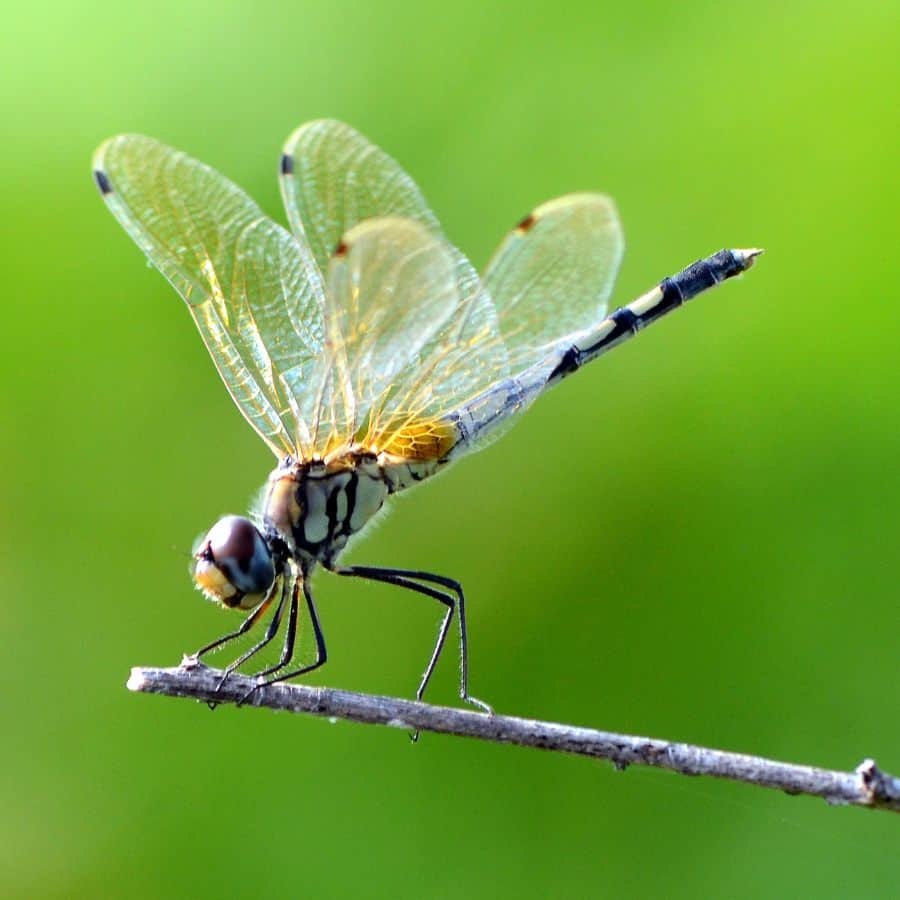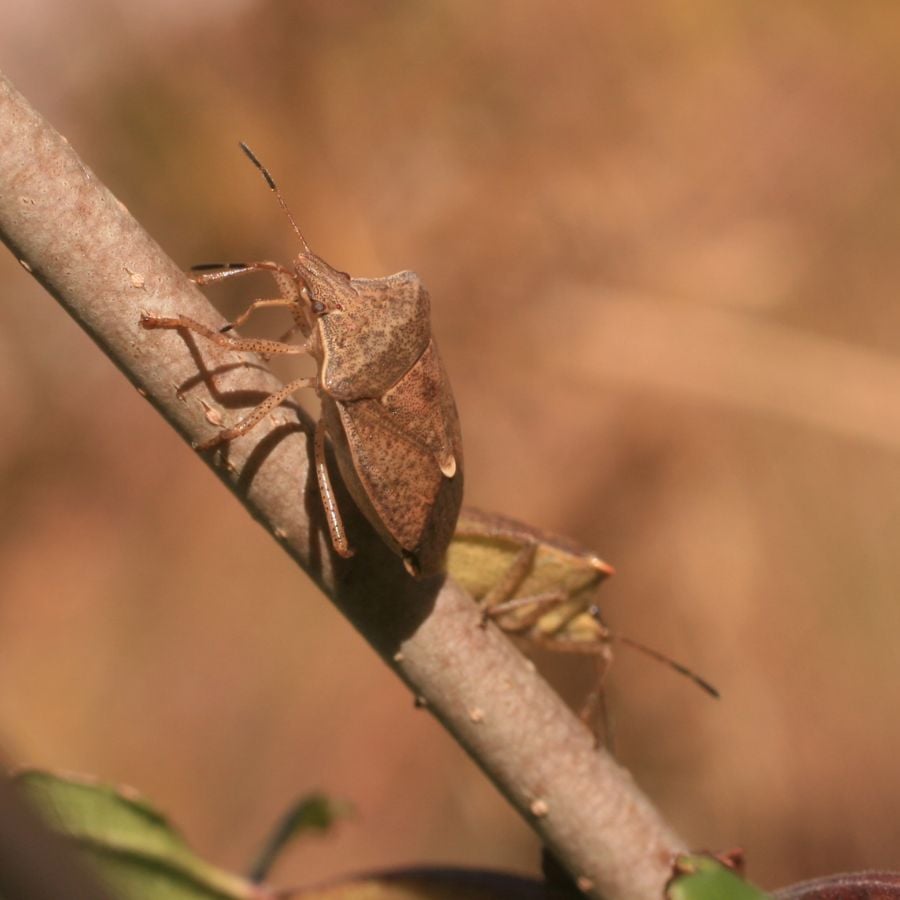
Forget what you’ve heard about insects being garden villains! The secret most plant experts won’t tell you is that your garden NEEDS certain bugs to thrive.
While reaching for that pesticide might seem like the right move, you could be killing off the very creatures that would transform your garden from struggling to spectacular.
Here are 9 incredible insect allies that deserve VIP status in your spring garden!
The Tiny Predators That Will Save Your Plants
These miniature hunters are the unsung heroes of your garden ecosystem. They patrol your plants day and night, hunting down the pests that want to devour your precious greenery.

Think of them as your garden’s personal security team, except they work for free!
1. Ladybugs: The Adorable Assassins
They’re not just cute. They’re killers! These vibrant little beetles are garden superheroes in disguise. A single ladybug can devour up to 5,000 aphids in its lifetime. Yes, you read that right; 5,000!
Most people make this mistake with their garden: they see insects and immediately reach for pesticides. But ladybugs are nature’s pest control specialists, eliminating aphids, scale insects, and mites faster than any chemical spray ever could.
2. Lacewings: The Green Gladiators
These delicate-looking insects are actually garden mercenaries. Their larvae are such voracious predators that they’re nicknamed “aphid lions,” and they live up to the title! A single lacewing larva can consume up to 200 aphids per week.
I was shocked to discover that lacewings don’t just stop at aphids. They’ll also feast on thrips, whiteflies, and even small caterpillars. They’re like the Swiss Army knife of beneficial insects!
3. Praying Mantises: The Ambush Artists
With their alien-like appearance and lightning-fast strikes, mantises are the ninjas of your garden. These patient predators will sit motionless for hours before snatching their prey with surgical precision.
While they might look a bit intimidating (I still get a little startled when I spot one!), these fierce hunters will patrol your garden for large pests that other beneficial insects can’t handle.
The Ultimate Pollinators and Pest Controllers
Some insects pull double-duty in your garden, both pollinating your flowering plants and hunting down pests. Talk about garden multi-taskers!
4. Hoverflies: The Bee Impersonators
Often mistaken for bees due to their yellow and black stripes, these masterful mimics are actually flies with a talent for enhancing garden environments. As adults, they’re champion pollinators, visiting up to 15 flowers per minute!
But the real magic happens when they reproduce. Their larvae are voracious aphid predators, with each one capable of consuming up to 400 aphids before becoming an adult. That’s like having a pest control service that also delivers pollination as a bonus!
5. Dragonflies: The Aerial Acrobats
The game-changer for your spring garden isn’t what you think. It’s these stunning aerial hunters. Dragonflies can catch and eat mosquitoes mid-flight, consuming up to 100 per day!

These iridescent speedsters patrol your garden airspace, intercepting mosquitoes, flies, and gnats before they can bother you or damage your plants. They’re basically the fighter jets of your garden’s defense system!
The Specialist Pest Destroyers
Your garden is trying to tell you something important: it needs these specialized predators to keep specific pest problems in check.
6. Parasitic Wasps: The Stealthy Infiltrators
Don’t let their name scare you. These tiny non-stinging wasps are garden miracle workers. Using a strategy straight out of a sci-fi movie, they lay their eggs inside pest insects. When the eggs hatch, the larvae consume the pest from the inside out!
A single parasitic wasp can eliminate hundreds of caterpillars, aphids, or whiteflies in its lifetime. Nature can be brutal, but incredibly effective!
7. Ground Beetles: The Night Shift Patrol
These glossy black beetles are the nocturnal guardians of your garden soil. When you’re sleeping, they’re hunting slugs, snails, cutworms, and other soil-dwelling pests that would otherwise decimate your seedlings.
One ground beetle can consume its body weight in pests every day; that’s like you eating several hundred hamburgers daily! Just be aware that they sometimes nibble on seeds too, so give them plenty of pest alternatives.
8. Tachinid Flies: The Undercover Operators
They might look like ordinary house flies, but these remarkable insects are secret weapons against caterpillars and stink bugs. Like tiny garden exterminators, they parasitize these pests, preventing massive crop damage.
The difference between amateur and pro plant parents is simply knowing which insects to keep around, and tachinid flies definitely make the “keep” list!
9. Spined Soldier Bugs: The Armored Warriors
Despite their intimidating name, these beneficial predators are garden allies, characterized by distinctive spines behind their heads. They’re particularly valuable because they target many pests that other beneficial insects avoid.
A single soldier bug can consume up to 100 pest insects like beetle larvae and caterpillars in its lifetime. They’re like the specialized forces of your garden’s defense system, handling the tough cases!

How to Attract Your Six-Legged Garden Allies
Ready to build your dream team of garden defenders? Here’s how to roll out the welcome mat:
- Skip the pesticides! Chemical sprays kill both beneficial and pest insects. Instead, use targeted organic methods when absolutely necessary.
- Plant a diverse array of flowering plants that bloom throughout the season. Different beneficial insects prefer different flowers!
- Add a shallow water source with stones for insects to perch on while drinking.
- Include ground cover and mulch to create a habitat for ground beetles and other soil-dwelling organisms.
- Be patient and tolerant of a few pests. They’re food for your beneficial insects!
The secret to a flourishing spring garden isn’t more chemicals or constant intervention—it’s creating a balanced ecosystem where these incredible beneficial insects can do what they do best: keep your plants healthy and vibrant!
Remember, when you see these insects in your garden, they’re not intruders—they’re invited guests providing free pest control services that no spray can match. Now that’s what I call a garden breakthrough!